Basic counting skills Easy Math Worksheets for Ages 5-9
5 filtered results
-
From - To
Welcome to our "Basic Counting Skills Easy Math Worksheets" collection, specially designed for children aged 5-9! These engaging worksheets provide a fun and interactive way for young learners to enhance their counting abilities through colorful activities. Our resources include counting exercises, number recognition, and engaging games that foster a love for math. With various formats to choose from, children can enjoy practicing essential math skills at their own pace. Ideal for both classroom settings and home learning, these worksheets are perfect for building a strong foundation in counting. Explore our collection and watch your child thrive in math!
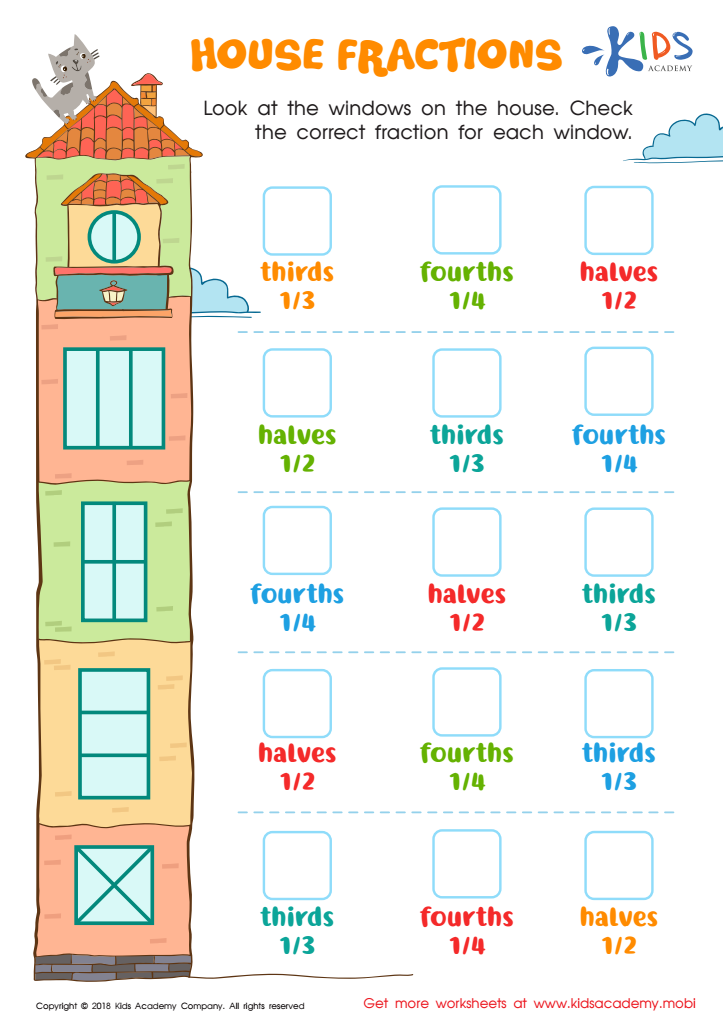

House Fractions Worksheet
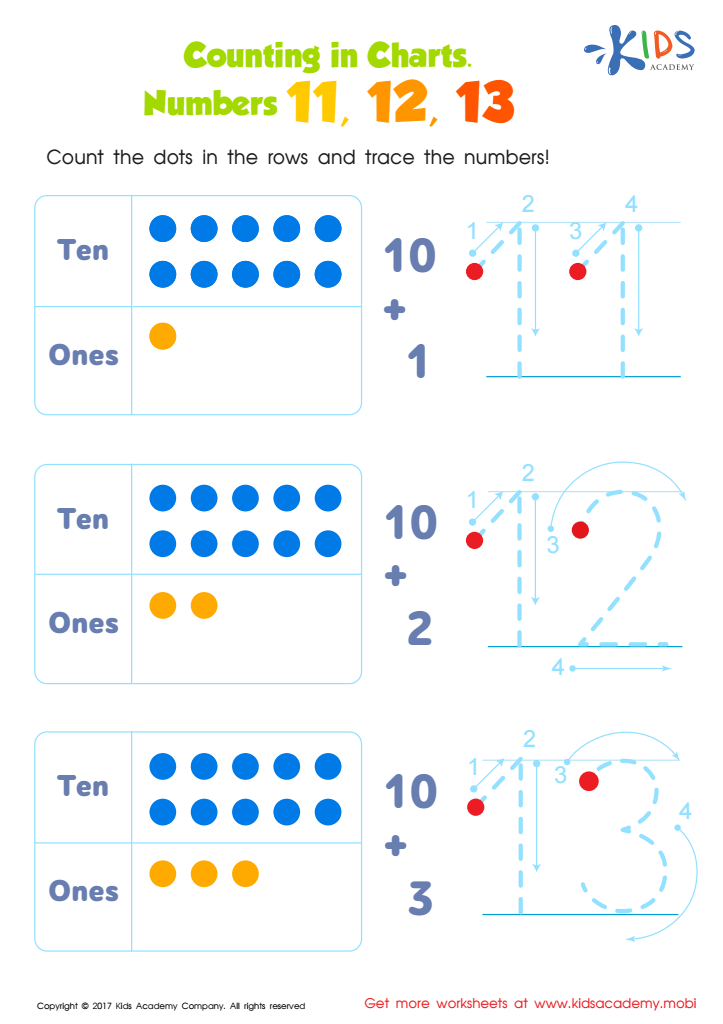

Number Tracing Worksheet For Kindergarten
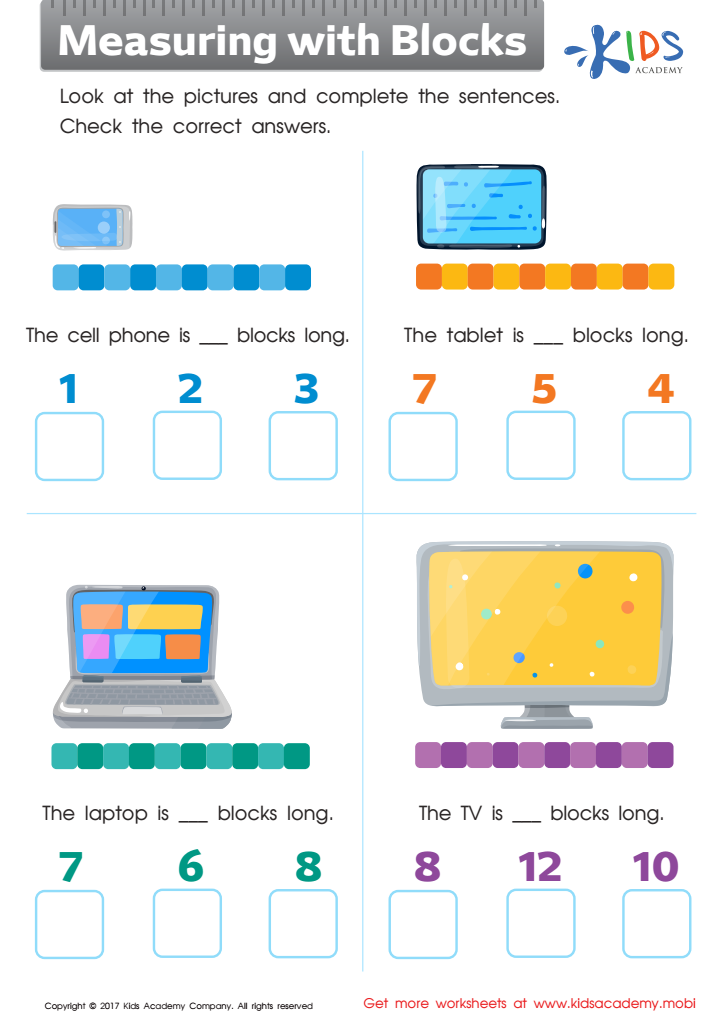

Measuring with Blocks Worksheet
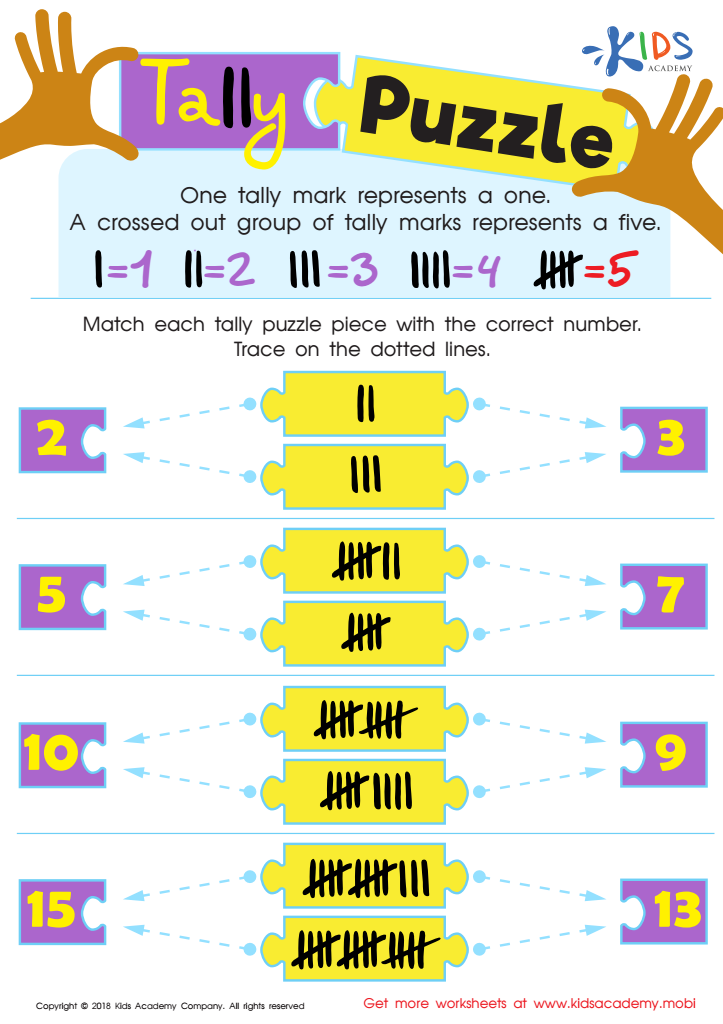

Tally Puzzle Worksheet
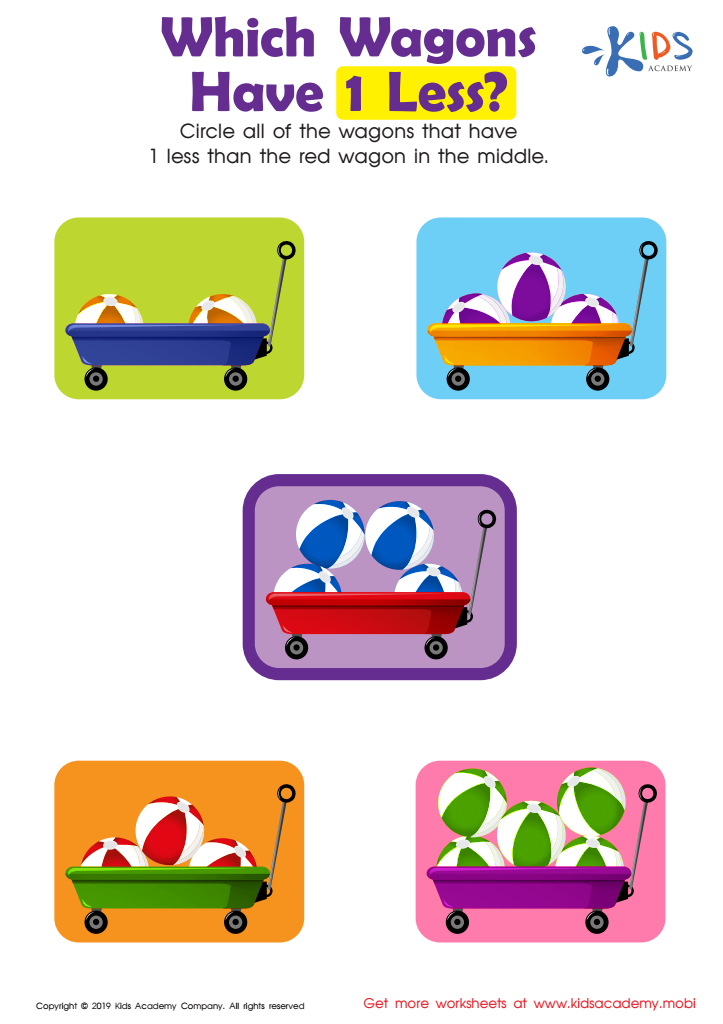

Which Wagons Have 1 Less? Worksheet
Basic counting skills are fundamental to early math education and have far-reaching implications for children aged 5 to 9. First and foremost, counting forms the foundation for all future mathematical concepts, such as addition, subtraction, and understanding numerical relationships. Mastering counting helps children develop number sense, which is essential for problem-solving and logical reasoning.
Moreover, counting skills enhance cognitive development by sharpening memory and attention. They encourage the early implementation of patterns and sequences, critical for recognizing math concepts in daily life. For teachers and parents, it is essential to engage children in fun and interactive counting activities, like counting objects during playtime or singing counting songs, to foster a positive attitude toward math.
Additionally, strong counting abilities contribute to children's confidence, as success in early math leads to a greater willingness to tackle more challenging concepts later on. Parents and teachers play a crucial role in building this foundation by providing supportive environments and resources that encourage curiosity and exploration in math. By prioritizing basic counting skills, they equip children with the tools they need for academic success and lifelong problem-solving abilities. Overall, investing in early math literacy greatly benefits children’s future learning trajectory.

 Assign to My Students
Assign to My Students


.jpg)




%20(1).jpg)








